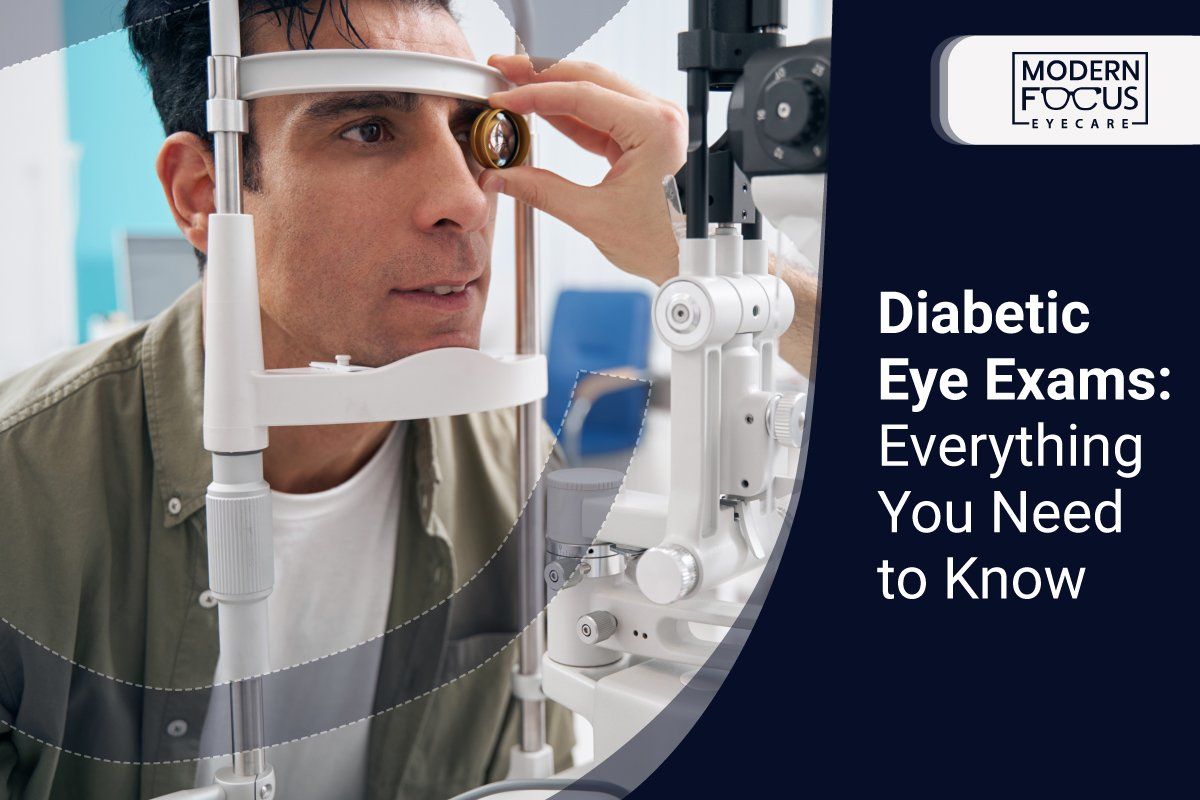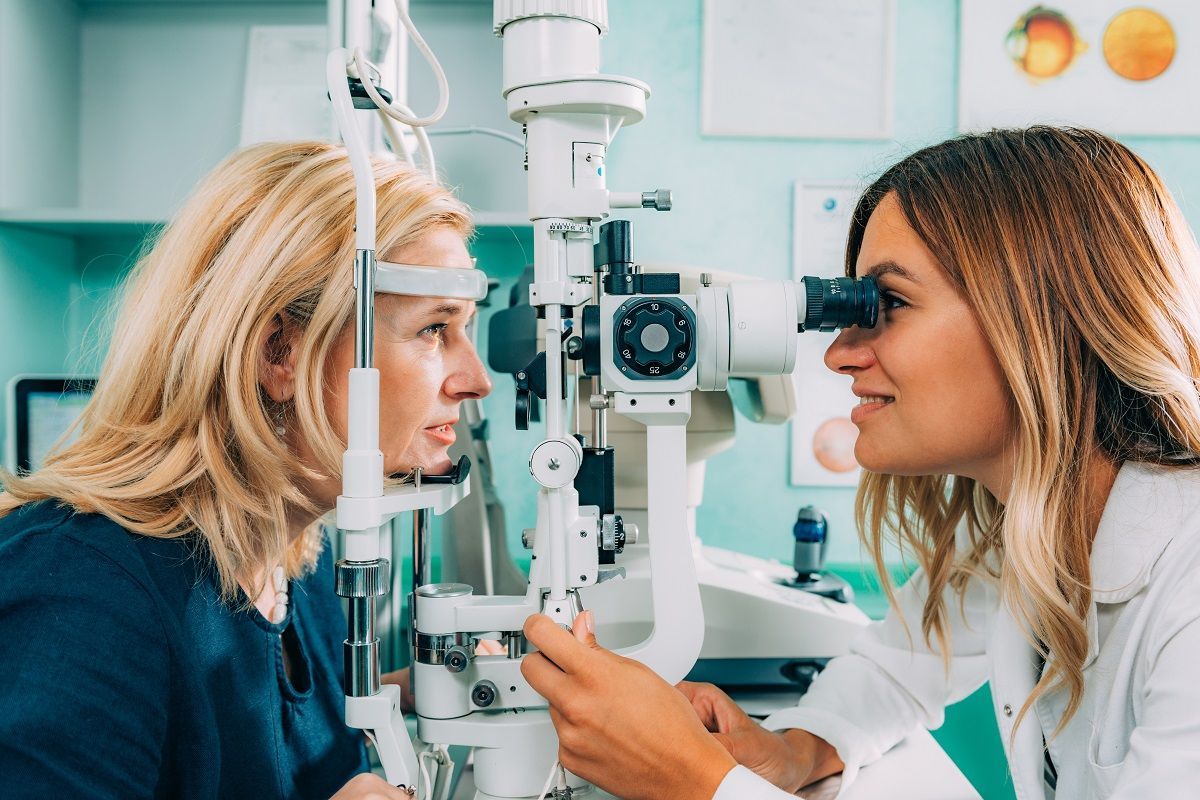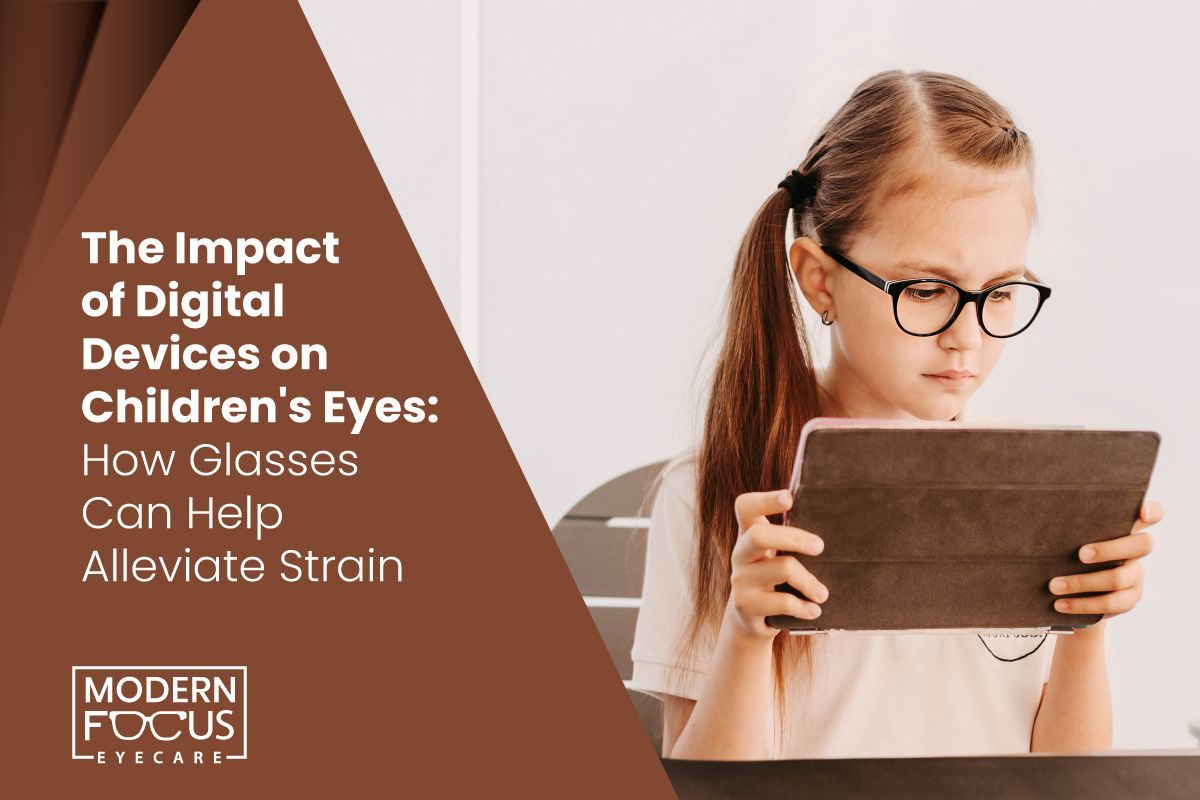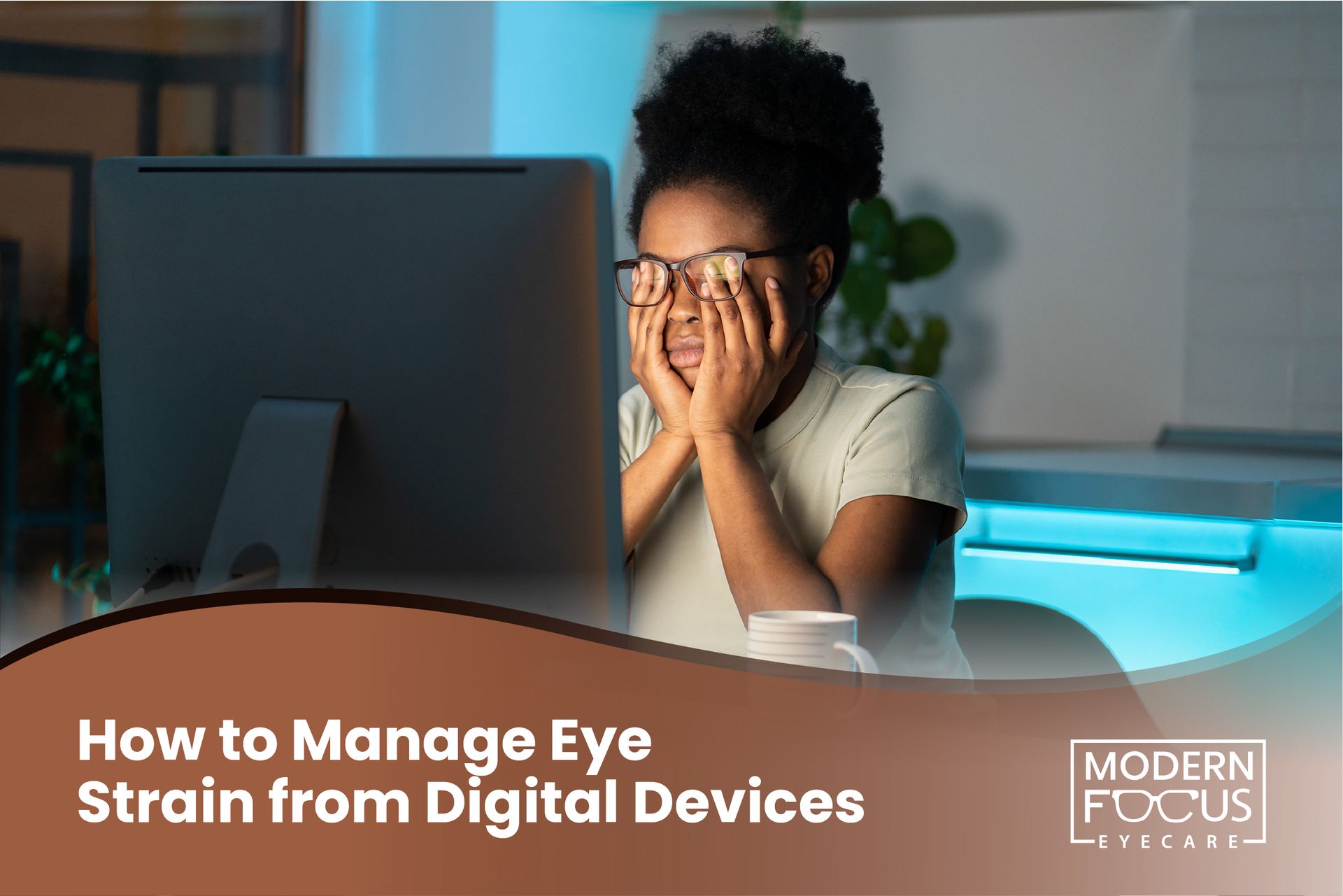Diabetic Eye Exams: Everything You Need to Know

Blindness is a severe complication of diabetes that affects many people worldwide. Nowadays, diabetes is the leading cause of blindness. This is especially true for individuals ages 20 to 70 in the global working-age population. Diabetic blindness is growing as diabetes rates rise and the global population ages.
Fortunately, diabetes eye exams and early treatment of diabetic eye disease can reduce blindness risk by
95%. Check out our diabetic eye exam guide for everything you need to know.
To begin with, we should take a look at diabetic eye diseases and what they are.
What Is Diabetic Eye Disease?
Diabetic eye disease affects people with diabetes and can cause various vision problems. If left untreated, it can damage your eyes and lead to poor vision or blindness.
Diabetic eye disease can affect people with
type 1 or
type 2 diabetes. The longer you live with uncontrolled diabetes, the greater the risk of developing complications.
The following encompasses diabetic eye disease:
- Diabetic retinopathy. This is the most common type. High blood sugar levels damage the retina's blood vessels, leading to diabetic retinopathy. As a result of impaired blood flow, these vessels may swell and leak, causing eye problems (blurry vision). The disease affects both eyes in most cases.
- Diabetic macular edema. When leaky blood vessels affect the macula of the retina, diabetic macular edema occurs. Fluid leaking from these vessels affects the macula and impairs vision.
- Cataracts. Despite their clear structure, our eyes' lenses become cloudy with age. The risk of developing cataracts is higher in people with diabetes. As a result, cataracts develop earlier than in people without diabetes. Deposits are believed to form in the eyes' lenses due to high glucose levels.
- Glaucoma. Various eye diseases can damage the optic nerve, including glaucoma. Unless treated early, diabetes doubles the risk of glaucoma.
How To Prevent Diabetic Eye Disease
Maintaining healthy blood sugar, blood pressure, and cholesterol levels will help prevent diabetes-related eye problems. However,
early detection of an impending development of diabetic eye disease is crucial in the prevention and management.
Here are ways you can prevent diabetic eye diseases from happening:
- Get an eye exam. Diabetes patients should have regular eye exams. This allows your ophthalmologist to check for changes in the retina's blood vessels that may indicate diabetic retinopathy.
- Keep your blood sugar under control. Maintaining a normal blood sugar level can prevent diabetic eye disease.
- Quit smoking. Smoking can damage your blood vessels supplying the retina, so you must quit.
- Avoid exposure to harmful rays. Wear sunglasses to protect yourself from the sun's ultraviolet rays. The progression of cataracts can be sped up when exposed to these rays.
Also, read
A Guide to Healthy Eyes and Better Vision.
What Is a Diabetic Eye Exam?
Regular eye exams and diabetic eye exams are similar in many ways. Diabetic eye exams, however, will focus primarily on your eye's retina and blood vessels. Two components of a diabetic eye exam highlight the assessment of the retina and blood vessels of the eye. These are the following:
1. Pupil Dilation
For diabetic eye exams, pupil dilation is necessary to see your
eyes' inner structures, such as your retina and optic nerve.
A special eye drop will be inserted into your lower eyelids to dilate your pupils. There may be temporary hazy vision and light sensitivity. At the same time, the eye drops work, but the effects usually last about 30 minutes. Most of these side effects disappear within a few hours.
2.
Fluorescein Angiography
The test detects damaged blood vessels in the eye. A dye will be injected into your arm and travel to your eyes, highlighting blood vessel damage.
How Does a Diabetic Eye Exam Work?
To successfully manage your diabetes, your eye doctor may determine the length and scope of your diabetic eye exam. A follow-up diabetic eye exam might only be needed if your last comprehensive eye exam did not reveal any signs of diabetic retinopathy.
Let's say you have had diabetes for a long time, and your doctor has already detected retinopathy symptoms. In that case, you may need a more comprehensive diabetic eye exam.
A diabetic eye exam typically includes the following tests and procedures:
Testing of Visual Acuity
Your eye doctor or assistant will use a
visual acuity chart to determine your visual acuity.
The effects of diabetes on the eyes can affect the clarity of your vision in several ways. Thus, visual acuity testing is almost always part of diabetic eye exams.
You may also need a refraction test if you have lost visual acuity since your last eye exam. The two reasons behind this are as follows:
- If the prescription for your eyeglasses has changed significantly
- Using new lenses, determine your best visual acuity.
Fundoscopy
In a
fundoscopy, your eye doctor examines the retina, blood supply, and optic nerve at the back of your eyeball.
Fundus Photography
Your eye doctor may take a
high-resolution photograph of the back of your eye. Photographing your fundus on the day of your diabetic eye exam provides a permanent report of your retina and retinal blood vessels. In addition to showing you the image on a digital screen, your eye doctor can also point out any issues with the image.
Glaucoma Testing
Glaucoma is
more likely to occur if you have diabetes and diabetic retinopathy. Thus, diabetic eye exams may also include measuring your eye pressure. This also involves taking a detailed look at your optic nerve during the fundoscopy.
How Often Should I Have a Diabetic Eye Exam?
Diabetes patients should follow strict precautions to maintain eye health, according to the American Diabetes Association (ADA):
- Type 1 diabetes patients should have a diabetic eye exam within five years of diagnosis and then every year thereafter.
- Adults with Type 2 diabetes should schedule an examination as soon as possible.
- Diabetes patients planning to get pregnant should consult their eye doctor. Pregnant women should also have an eye examination within the first three months of pregnancy, followed by another eye examination after delivery.
Also, read
Your Diabetes Care Schedule.
Early Detection is Early Prevention
Here at
Modern Focus Eyecare; we aim to give you the best eye care that suits your needs. Our institution provides diabetic eye exams to assess any signs of eye damage due to diabetes. Additionally, our board-certified optometrists can give the utmost care you need to prevent the development of diabetic eye diseases and reduce your risk of complications. Let's talk about your eye health today. Call us at
(972) 617-800.
If you have any questions, schedule an appointment
With Our Eye Doctor or Call Us At (972) 617-8000
Modern Focus is your one-stop Eyecare Center in Texas. We have a team of highly-experienced optometrists to examine, diagnose, treat, and manage diseases, injuries.
Useful Links
Our Eye Services
Copyright © 2021 Modern Focus. All rights reserved.











